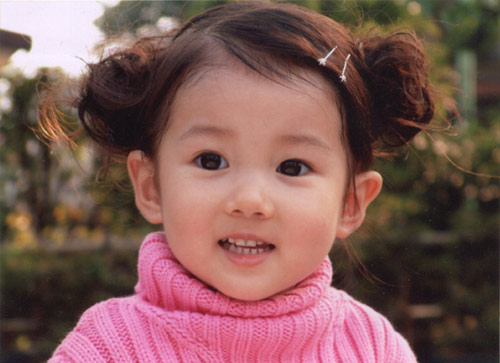|
查看原文
Unlike other East Asian nations where preference for sons over daughters still prevails, gender preference for children in Japan has progressively shifted from son preference to visible daughter preference over the past few decades.
The extent to which individuals’ child gender preference is shaped by their gender role attitudes and evaluate whether daughter preference. It is a reflection of convergence or persistent divergence in gender roles in Japan.
Data from the Single Persons subset of the 11th Japanese National Fertility Survey conducted by the National Institute of Population and Social Security Research in 1997 suggests that the effect of gender role attitudes on one’s child gender preference differs for men and women. Overall, while daughter preference is associated with nontraditional gender role attitudes for men, daughter preference is associated with traditional attitudes for women.
The tendency for preference for daughters among the Japanese has been revealed by a number of large-scale national surveys. Empirical papers on the topic have also been published in Japanese journals. Research on gender preference for children in Japan is in fact not a new area within the Japanese sociological and demographic literature.
Gender preference for children in Japan has progressively shifted from son preference to visible daughter preference over the past few decades. This may appear shocking to sociologists and demographers since it has been long believed that preference for sons over daughters prevails in populations of East Asia. There is a large volume of published research that uncovers parental son preference in countries such as China and the Republic of Korea. However, not much research has been published on the state of this issue in Japan. Such chronic lack of interest is perhaps attributable to: (1) the assumption that Japan is similar in its gender preferences for children to its neighbors because of its geographic proximity and shared Confucius background; and/or (2) the presumption that the Japanese exhibit less or no son preference given its higher level of economic development, thereby making it less appealing to examine. However, because daughter preference has become evident in Japan, it is time to give more attention to the issue.
The issue of parental gender preferences for children has implication not only for human rights but also for its demographic impact. In developing countries, salient son preference causes sex-selective abortion, female infanticide, or female neglect. Also, we know from research on China that son preference coupled with strict fertility regulations has raised the issue of imbalanced sex ratios at birth. Thus, an emergence of skewed sex ratios at birth is a likely scenario if daughter preference continues to be common in a society with declining fertility.
In the context of Japan’s very low fertility1 where most women have only one child, it may become crucial for their first or only child to be of the gender they desire. Because today’s reproductive technologies can hypothetically give parents the ability to control the gender of their offspring, with the presence of daughter preference it is likely that individuals will turn to such technologies to ensure daughters. Therefore, gender preference for children in a low fertility nation needs to be addressed for its potential demographic consequences as well as its implications for ethical issues and human rights concerns.
|
查看譯文
在其他東亞國家重男輕女趨向仍然盛行的今天���,日本過去幾十年的兒童性別偏好已逐步從重男輕女轉(zhuǎn)向明顯的女兒偏好����。
個人的子女性別偏好程度是由性別角色態(tài)度造成的���,它決定女兒偏好存在與否��。反映了日本性別角色分歧的收斂或持續(xù)���。
1997年,日本國家人口和社會保障研究所進(jìn)行的第11次國家生育率調(diào)查的數(shù)據(jù)表明���,性別角色態(tài)度對男性和女性的子女性別偏好影響不同��?���?偟膩碚f���,男性的女兒偏好受非傳統(tǒng)性別角色態(tài)度影響��,女性的女兒偏好則與傳統(tǒng)觀念有關(guān)�����。
許多大規(guī)模的全國性調(diào)查已經(jīng)揭示了日本人傾向于喜歡女兒�,日本雜志上也發(fā)表過這一主題的實(shí)證論文�。實(shí)際上,日本兒童性別偏好研究已不是日本社會學(xué)和人口文學(xué)中的新領(lǐng)域��。
過去幾十年內(nèi)��,日本的兒童性別偏好已逐步從重男輕女轉(zhuǎn)向明顯的女兒偏好���。這個結(jié)論可能會令社會學(xué)家和人口學(xué)家震驚�,因?yàn)槿藗円恢闭J(rèn)為東亞人群中重男輕女傾向普遍。大量已發(fā)表研究揭示了中國和韓國等國的父母重男輕女傾向�����。然而����,關(guān)于日本重男輕女問題狀況的研究發(fā)表很少。也許這種興趣的長期缺乏是由于:(1)日本兒童性別偏好與其鄰國相似的假設(shè)��,因?yàn)槿毡九c其鄰國之間的地理距離短且共有儒學(xué)背景��;(2)日本很少或不表現(xiàn)出重男輕女傾向是由于經(jīng)濟(jì)發(fā)展水平較高的假設(shè)�,因此日本的研究吸引力較小。然而�,由于日本的女兒偏好愈加明顯,現(xiàn)在已是更多地關(guān)注這個問題的時候�����。
家長的兒童性別偏好問題不僅影響人權(quán)�,同時也對人口有影響。在發(fā)展中國家��,突出的重男輕女傾向造成了性別選擇性墮胎�����、殺害女嬰或忽視女性等行為。同時����,我們從中國研究中知道,重男輕女現(xiàn)象加上嚴(yán)格的生育規(guī)定造成了中國性別出生率不平衡的問題�����。因此�,如果一個生育率下降的社會存在普遍而持續(xù)的偏女兒傾向����,則這個社會很可能出現(xiàn)性別出生比例失衡的現(xiàn)象。
在日本生育率非常低的背景下����,大多數(shù)女性都只有一個孩子,所以第一個或唯一的孩子的性別是他們所期望的性別可能變得至關(guān)重要���。如今的生殖技術(shù)能使父母有能力控制他們后代的性別�����,所以女兒偏好的存在導(dǎo)致人們很可能用這類技術(shù)來確保得到女兒�。因此,低生育率國家需要解決兒童性別偏好問題��,以避免其潛在的人口以及其倫理和人權(quán)方面的不良影響��。
(譯者 英語1104陳睿馨 編輯 丹妮)
掃一掃����,關(guān)注微博微信
 
|


